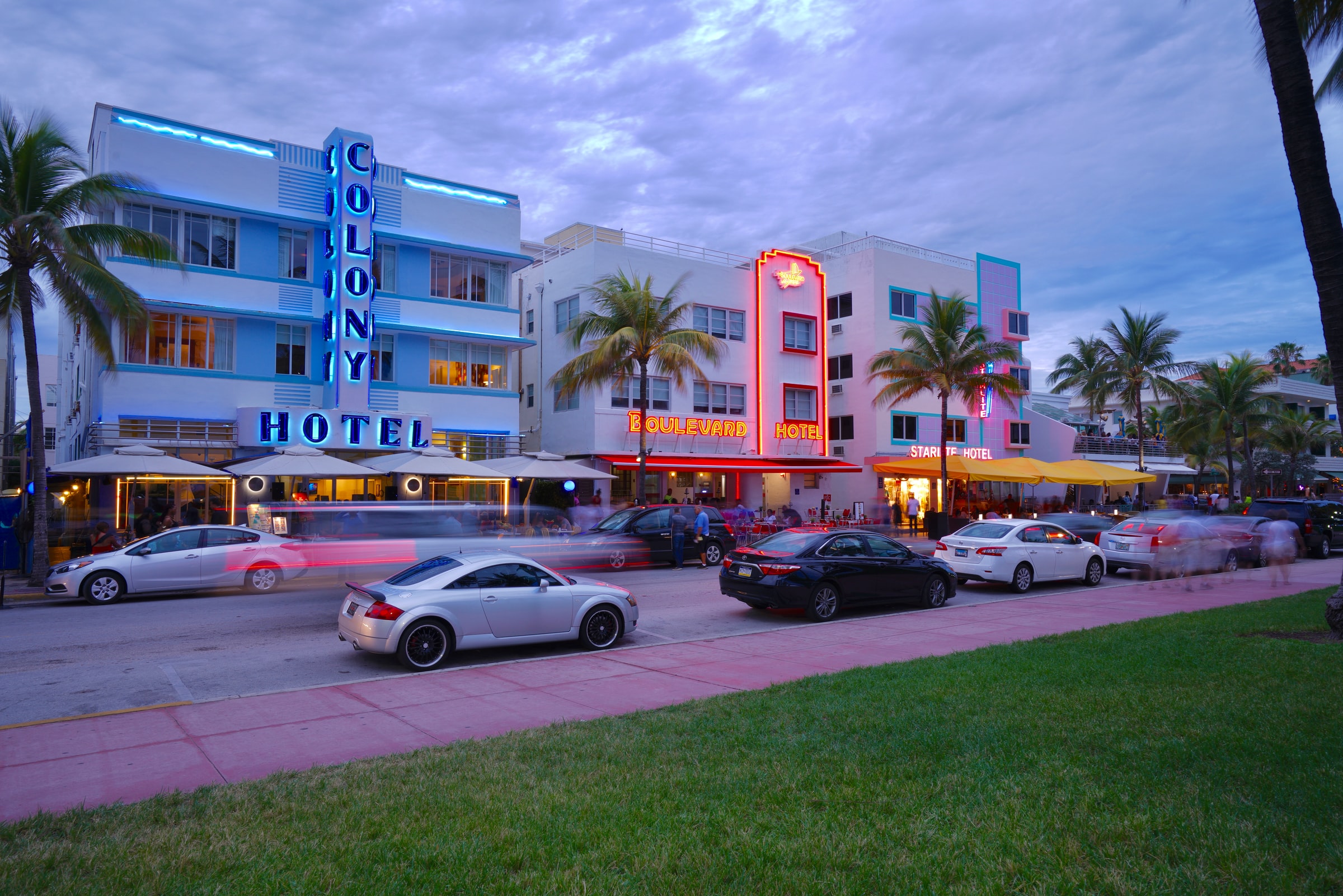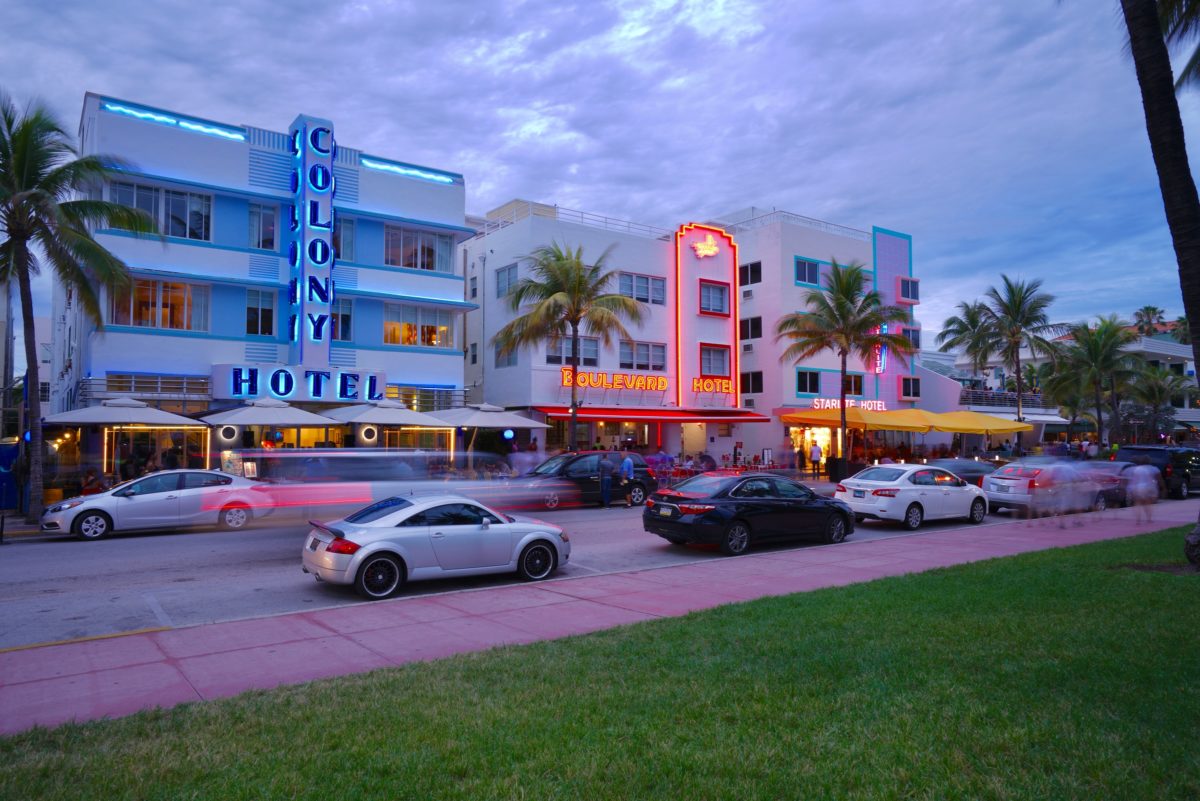Newsletter
Florida’s ‘Loud Car’ Ban Gives Cops a New Excuse to Harass Drivers
Florida seems to be sprinting in the opposite direction of progress. A new law allows cops to pull people over for driving loud cars.


FLORIDA’S ‘LOUD CAR’ BAN GIVES COPS A NEW REASON TO HARASS DRIVERS
by Jerry Iannelli
In November, the city of Philadelphia announced it was banning police from making so-called “pretextual stops,” in which officers pull someone over for a minor traffic infraction, a broken taillight, or an expired registration, often as an excuse to search their car or otherwise harass them. Multiple municipalities have explored similar moves in the wake of the 2020 George Floyd Uprising, building on data showing that police pull over people of color at much higher rates than white drivers. Overall, traffic stops are the most common way people interact with cops, and also the most common way civilians experience police violence. Civil liberties groups have lauded the moves as an important step in the campaign to rein in racist policing.
Florida, however, seems to be sprinting in the opposite direction of progress. On July 1, a new law took effect statewide, giving police new powers to pull people over just for driving a car that an officer thinks is too loud.
Under the law, HB 1435, police officers can stop and ticket any car that can be heard past 25 feet, or that is deemed “louder than necessary” when driving past churches, hospitals, schools, or any residential homes. (Separately, HB 1435 also includes language letting police crack down on public gatherings larger than 50 people.)
Numerous civil rights groups, including the American Civil Liberties Union of Florida and Florida Immigrant Coalition, lobbied against the bill before it was signed into law on May 26. Rights groups have fought against similar “loud stereo” bans enacted in Florida municipalities: In 2010, the ACLU of Florida secured a $50,000 settlement from the city of Sarasota on behalf of a man who’d had his car impounded under a draconian local noise ordinance. As part of the settlement, the city agreed to stop enforcing that law.
A previous version of Florida’s “loud car” law had been on the books from 2005 until 2012. That version of the law, however, included a carve-out for vehicles making noise for “business or political purposes.” In 2012, the Florida Supreme Court struck down the entire statute, stating that it infringed on political expression.
Florida’s HB 1435 eliminates that confusion by banning all noise that a cop considers too loud. If that standard seems vague, that’s because it is. How will officers know if they heard a “loud car” from a distance of 25 feet or, say, 28 feet? How loud is “louder than necessary”? How will people accused of having “loud cars” defend themselves when that determination is up to an officer’s discretion? The ambiguity of HB 1435 gives Florida officers a perfect excuse to make “pretextual stops” based on unverifiable claims that someone’s music was too loud.
The fight against pretextual stops has been ongoing for years, but police reformers and abolitionists breathed new life into the movement after the murder of George Floyd. In its “Motion for Justice” political platform, the Vera Institute of Justice nonprofit recommends lawmakers “decline cases based on pretextual stops” and that such a policy is “an important step toward racial justice.”
“Sandra Bland was pulled over for failing to signal a turn,” Vera notes on its website. “Eric Garner was stopped for selling loose cigarettes. Philando Castile was pulled over because his brake lights were out. Each one the victim of a pretextual stop: when someone is detained for a minor infraction while police seek evidence of a more serious crime.”
Studies show that police deploy pretextual stops disproportionately against people of color. A 2020 study in the journal Nature Human Behavior found that pretextual stops for contraband “suffer from persistent racial bias.” The study also found that these racial disparities became less pronounced at night—suggesting that it’s harder for cops to determine the race of a driver in the dark. Around 10 percent of all police killings each year involve traffic stops, according to data collected by Mapping Police Violence, a nonprofit research group. In 2020, criminologist Jordan Blair Woods argued that cities and states could move traffic enforcement away from armed police officers entirely. In 2021, a Florida lawmaker introduced a bill based on Woods’ proposal, but that measure never passed. The state has now gone in the opposite direction.
It may strike some as strange that Florida, of all states, is cracking down on loud cars, booming music, and outdoor parties—things that make Florida, well, Florida. But this is just the latest front in a miniature Cold War that has raged for years in Florida’s beach communities, where the older, whiter, and richer residents who own homes and investment properties work tirelessly to fight off the younger, less affluent, and more racially diverse people who come to vacation.
The state’s weak Democratic Party has barely put up a fight in the face of this erosion of civil liberties. Some lawmakers have even cheered the crackdown. In Miami Beach—the gay-friendly, Democrat-voting, nightlife capital—city officials have for years tried to shut down Black-friendly Spring Break, Memorial Day, and other party events, at the urging of the same class of landowners. The Miami-Dade County chapter of the NAACP has repeatedly criticized the city for allegedly discriminating against Black visitors, following its use of everything from police, to citizens’ vigilante groups, to curfews, to stunt airplanes and its own loud car ban, to drown out Black events. In response to the enactment of HB 1435, Miami Beach said it will roll out a pilot program to install noise detectors around town and catch anyone who plays a stereo too loud.
Similar dynamics have played out across the state: In a racist dog whistle, Florida Rep. Tom Leek, the Ormond Beach Republican who proposed HB 1435, said earlier this year that he filed the bill after parties that, in his words, had become “invasions” in his own Volusia County. That proponents of the law use such terms is no accident—the only reason to make a rule like this is to use it against people you don’t like.
In the news
At least 20 counties in 18 states are using, or want to use, COVID relief money to build or expand jails and prisons. [Lauren Gill / The Nation]
In January, prison journalist, activist, and mentor Phoeun You was paroled after serving 25 years in prison for a murder he committed when he was 20. But he wasn’t set free. Instead, he was sent to the Mesa Verde ICE Processing Facility in Bakersfield. Without a pardon from Governor Gavin Newsom, You will be deported to Cambodia, a country he left as a young child. [Frances Madeson / Capital & Main]
In 2019, former Broward County, Florida, sheriff’s deputy Christopher Krickovich slammed a Black teenager’s head into the pavement and punched his head. On Monday, a jury acquitted Krickovich of misdemeanor battery. [Associated Press]
A pilot program has started at the County Jail No. 3 in San Bruno, California, that has detained people locked in their cells for all but 45 minutes a day. [Joe Eskenazi / Mission Local]
When there is so much loss, what can you say? Scalawag has published a guide on what to say when loved ones are grieving. [Scalawag Editors and Scalawag Community]
At least five women have said that a nurse at a U.S. Immigration and Customs Enforcement jail in Georgia sexually assaulted them. [José Olivares and John Washington / The Intercept]
ICYMI — from The Appeal
At least 60,000 people aged 50 or older are released from U.S. prisons each year, and as Hope Corrigan reports, the challenges formerly incarcerated people face in securing eldercare leave many with nowhere to turn.
Bryce Covert reports on the challenges of uplifting positive outcomes from bail reforms, how the lack of positive coverage plays a role in the backlash movement, and why media is so fixated on negative bail reform coverage.
Police officers in San Diego have arrested a man 160+ times, mostly on low-level charges. As Kelly Davis reports, his story offers a window into a system that immensely harms so many people who are chronically homeless or have mental illness.
Law enforcement agencies spend hundreds of millions each year on militarized sweeps of sex-offense registrants. The evidence shows the operations do little to prevent sexual violence. But as Steven Yoder reports, they’re a powerful tool for copaganda.
Fulton County District Attorney Fani Willis has earned praise recently for investigating Trump and vowing not to prosecute abortion seekers. This glossy coverage, however, has largely ignored Willis’’s tireless efforts to incarcerate Black educators, writes Anna Simonton.
That’s all for this week. As always, feel free to leave us some feedback, and if you want to invest in the future of The Appeal, please donate here.
